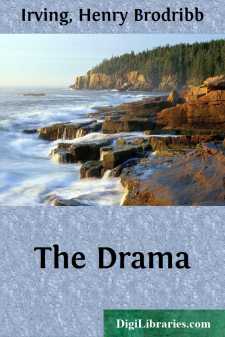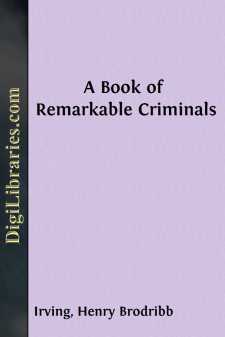Categories
- Antiques & Collectibles 13
- Architecture 36
- Art 48
- Bibles 22
- Biography & Autobiography 813
- Body, Mind & Spirit 142
- Business & Economics 28
- Children's Books 14
- Children's Fiction 11
- Computers 4
- Cooking 94
- Crafts & Hobbies 4
- Drama 346
- Education 46
- Family & Relationships 57
- Fiction 11829
- Games 19
- Gardening 17
- Health & Fitness 34
- History 1377
- House & Home 1
- Humor 147
- Juvenile Fiction 1873
- Juvenile Nonfiction 202
- Language Arts & Disciplines 88
- Law 16
- Literary Collections 686
- Literary Criticism 179
- Mathematics 13
- Medical 41
- Music 40
- Nature 179
- Non-Classifiable 1768
- Performing Arts 7
- Periodicals 1453
- Philosophy 64
- Photography 2
- Poetry 896
- Political Science 203
- Psychology 42
- Reference 154
- Religion 513
- Science 126
- Self-Help 84
- Social Science 81
- Sports & Recreation 34
- Study Aids 3
- Technology & Engineering 59
- Transportation 23
- Travel 463
- True Crime 29
Henry Brodribb Irving
Henry Brodribb Irving (1870–1919) was a British actor, author, and lawyer, known for his expertise on criminal psychology and the history of crime. The eldest son of renowned actor Sir Henry Irving, he initially pursued law, being called to the bar in 1894, before focusing on his literary and theatrical interests. His notable works include "A Book of Remarkable Criminals" (1918), in which he profiles infamous criminals and analyzes their behaviors. Irving also lectured extensively on criminal law and was a recognized authority on the psychology of crime in the early 20th century.
Author's Books:
Sort by:
THE STAGE AS IT IS. LADIES AND GENTLEMEN, You will not be surprised that, on this interesting occasion, I have selected as the subject of the few remarks I propose to offer you, "The Stage as it is." The stage—because to my profession I owe it that I am here, and every dictate of taste and of fidelity impels me to honor it; the stage as it is—because it is very cheap and empty honor that is...
more...
"The silent workings, and still more the explosions, of human passion which bring to light the darker elements of man's nature present to the philosophical observer considerations of intrinsic interest; while to the jurist, the study of human nature and human character with its infinite varieties, especially as affecting the connection between motive and action, between irregular desire or...
more...



